European Alliance for Apprenticeships High-Level event to Advance Skills and Clean Industry Goals
02/07/2025
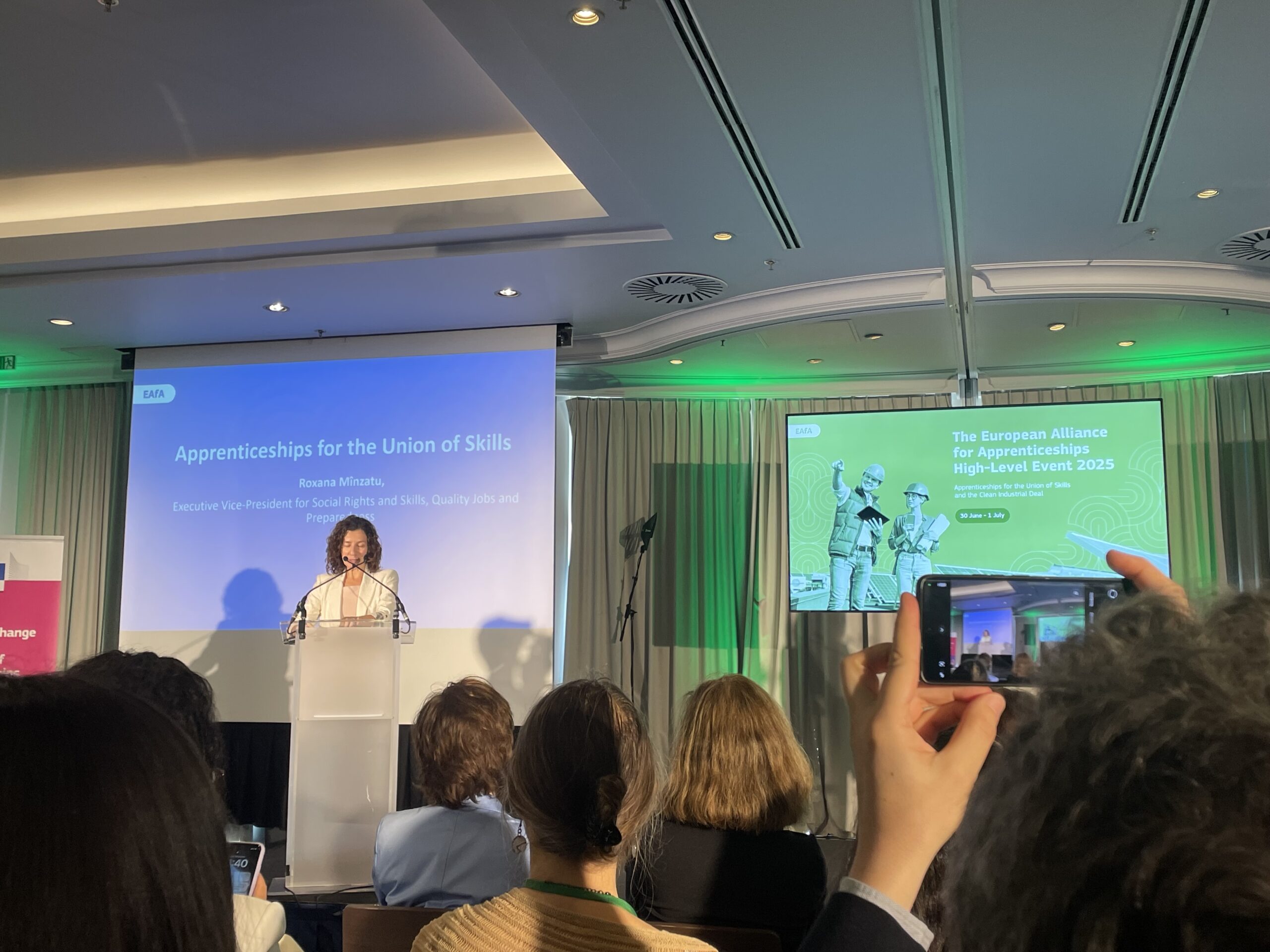
The European Alliance for Apprenticeships (EAfA) convened its annual High-Level Event in Brussels under the theme: “Apprenticeships for the Union of Skills and the Clean Industrial Deal.” The two-day gathering brought together high-level representatives from EU institutions, social partners, education providers, and regional actors, including EARLALL, a committed member of the EAfA. The event showcased the critical role of vocational education and training (VET) in delivering Europe’s green and digital transitions while boosting competitiveness and social fairness.
A Vision for Apprenticeships in the Union of Skills
Kicking off the event, Ms Roxana Mînzatu, Executive Vice President for Social Rights and Skills, Quality Jobs and Preparedness, outlined how apprenticeships are central to the Union of Skills (UoS) and the Clean Industrial Deal. She emphasised apprenticeships as enablers of quality jobs and competitiveness, particularly in sectors facing acute labour shortages due to decarbonisation and green innovation.
Key announcements included:
- The launch of a new Blue Book traineeship strand for VET graduates in 2026, opening 100 placements in EU institutions.
- The STEM Education Strategic Plan and Union of Skills framework aim to increase female engagement in STEM, including a goal to train 1 million women and girls by 2028.
- The upcoming VET Action Plan (2026) is to align with EU priorities in STEM and industry needs.
“Vocational education must become a star of the Union of Skills,” said Mînzatu, calling for apprenticeships to be recognised not only as a career path, but as a strategic tool for Europe’s future.
EAfA Expands and Evolves
Ms Manuela Geleng, Director for Jobs and Skills at DG Employment, highlighted the continued expansion of the Alliance:
- Over 500 members now participate, representing 3 million apprenticeship placements across 43 countries.
- New member signings took place during the event, reflecting growing momentum.
- An ambitious target of 700 members by 2030 was reiterated, along with stronger alignment with the Pact for Skills.
- Initiatives discussed include toolkits to expand apprenticeships for adults, sector-specific webinars, factsheets, and upcoming actions on basic skills development.
Voices from Social Partners: A Call for Quality and Cooperation
A panel featuring representatives from ETUC, BusinessEurope, SMEunited, and SGI Europe discussed how social partners can support the Union of Skills and the Clean Industrial Deal. Shared priorities included:
- Quality apprenticeships with fair pay and social protection, underpinned by workers’ rights and effective implementation.
- The need is for lifelong learning ecosystems and better integration of SMEs through simplified funding access.
- The importance of basic and transversal skills, with emphasis on inclusive, democratic training systems.
- Urgent investment needs, especially through the MFF, ESF+, and Erasmus+ programmes.
“We need to ensure apprenticeships are fair, clean, and democratic,” said Agnes Roman of ETUC, calling for stronger social dialogue and governance inclusion.
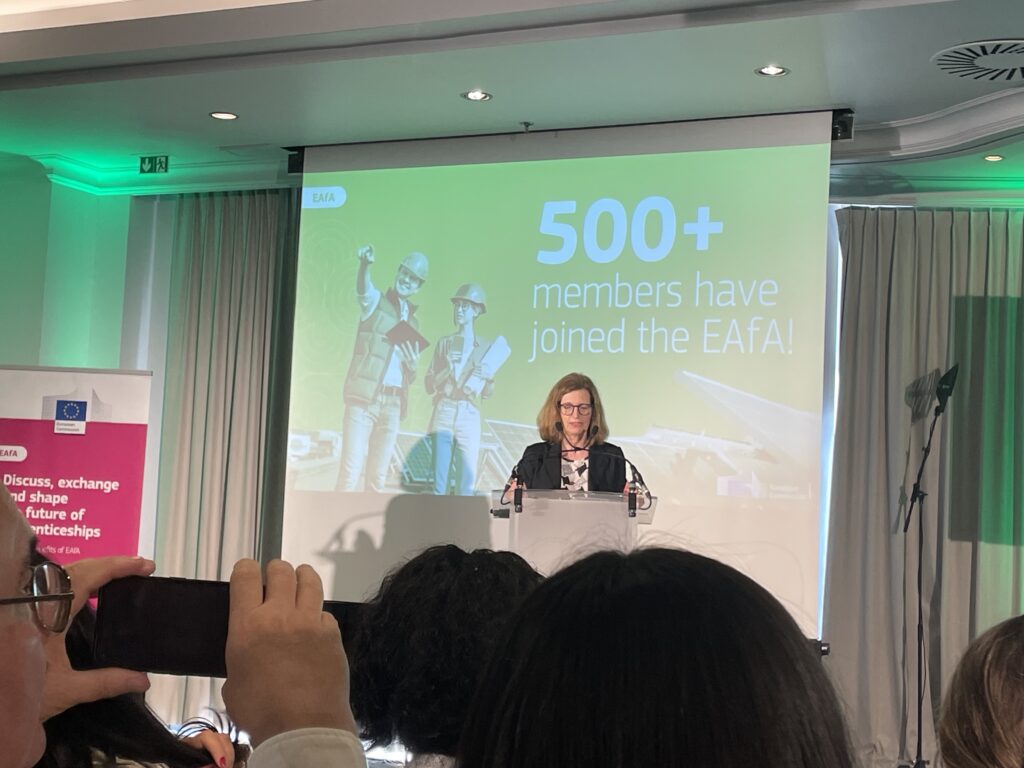
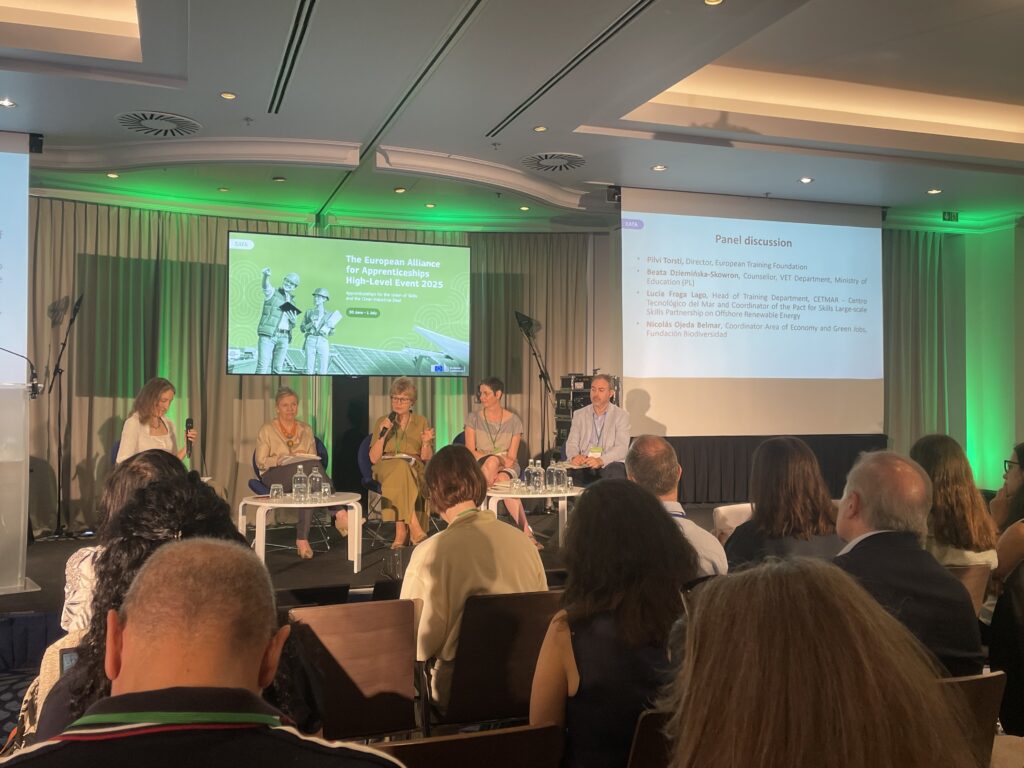
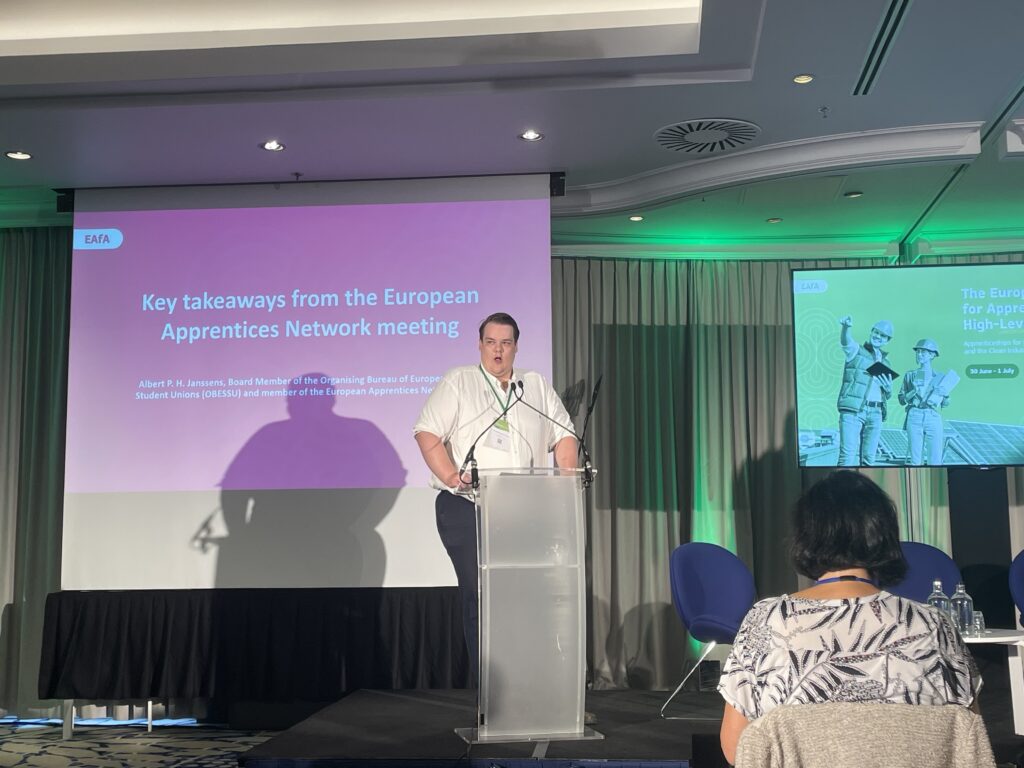
Skills for the Clean Industrial Deal: Examples from the Ground
The second day began with opening remarks by Mr. Albert P. H. Janssens, Board Member of OBESSU and member of the European Apprentices Network (EAN). He reminded participants that education is not only about responding to labour market needs but about empowering individuals to engage with what matters to them. He stressed the importance of supporting extracurricular pathways, embedding citizenship values in VET, and fostering a culture where associations are heard and genuinely represented. Linking green skills to Europe’s strategic global role, he underlined that while the U.S. and China may dominate in scale, Europe’s strength lies in its human capital—and cooperation, not competition, must be at the core of its values-based approach.
Following Albert’s remarks, practitioners shared on-the-ground strategies for developing skills aligned with the green transition. A dedicated panel explored how to enhance STEM education in apprenticeships, especially in energy-intensive and technology-driven sectors. Speakers from Cedefop, IBM, the European Builders Confederation, and others shared valuable insights.
In her concluding remarks, Ms. Anna Banczyk, Head of Unit for VET and Skills Portability, echoed the Executive Vice President’s full support for VET. She urged all stakeholders to walk the talk: “Let’s make apprenticeships a first choice, not a second or third. Let’s change the narrative and show the contribution of apprentices to building a greener, fairer future.”
With over 500 members and counting, the European Alliance for Apprenticeships is poised to play a central role in driving the Union of Skills and supporting the Clean Industrial Deal—with organisations like EARLALL actively contributing to that mission.
Get Together Event: EARLALL Takes the Stage
On the afternoon of 1 July 2025, the High-Level Event transitioned into the EAfA Get Together, a dynamic opportunity for participants to explore the work of the EAfA Communities and foster new partnerships. Led by EAfA members, this session offered a space for networking, collaboration, and knowledge exchange.
The EAfA Communities are designed to deepen engagement among members by encouraging bottom-up participation and interaction. They serve as platforms for sharing best practices, exchanging knowledge, and building strong, cross-border collaborations.
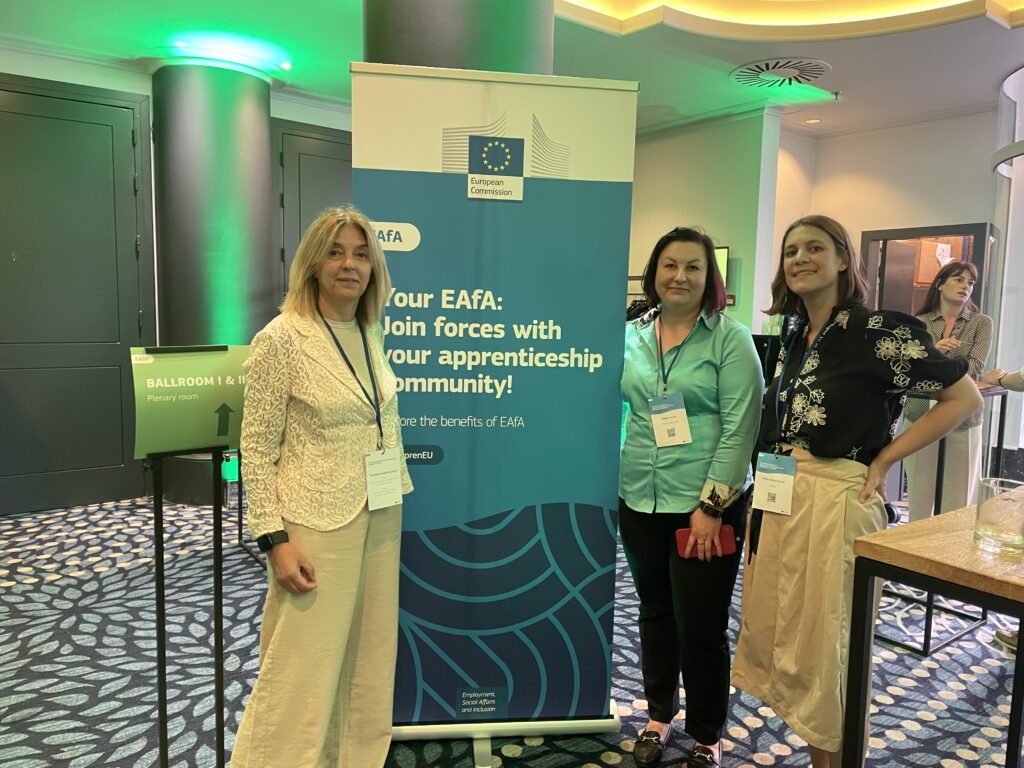
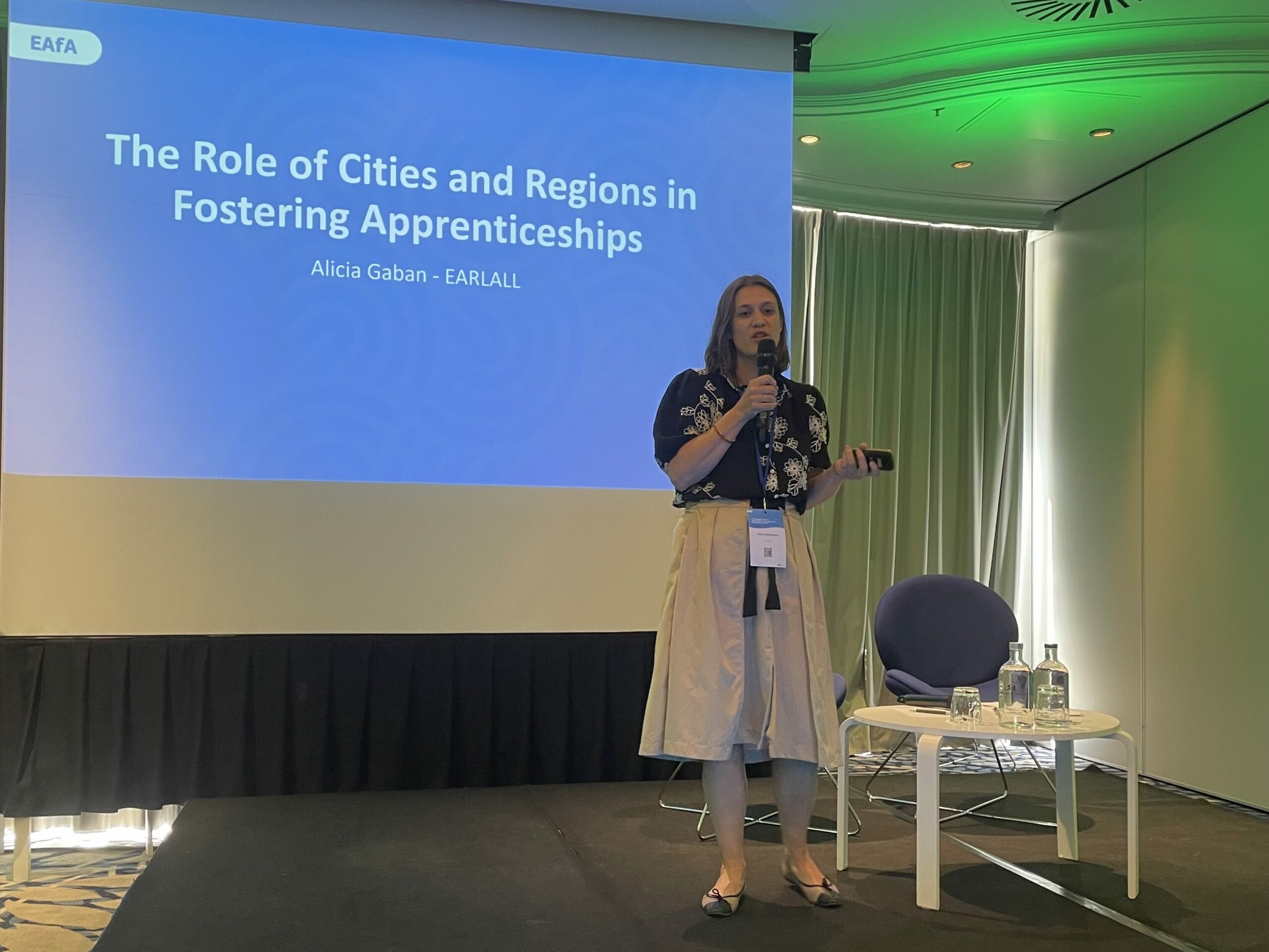
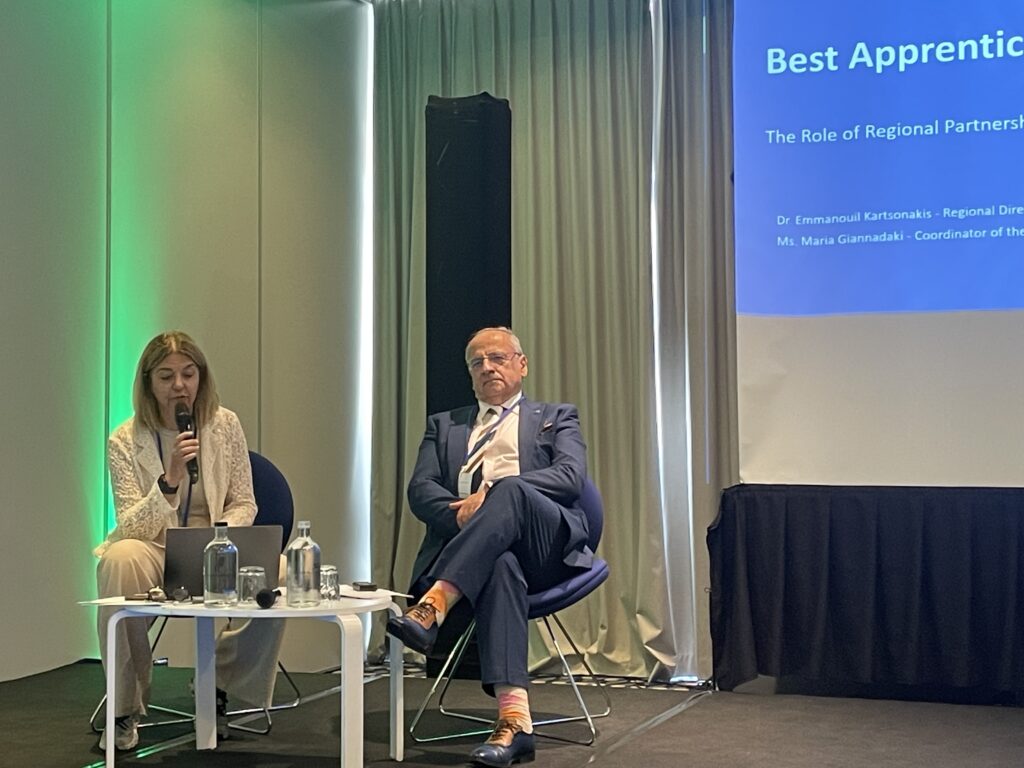
During the event, the chairs of all five EAfA Communities presented their main activities and achievements from the past year. This year also marked the launch of a new community on Higher Apprenticeships, joining the four existing ones:
- Learning Mobility of Apprentices
- Social Inclusion and Gender Equality
- Green and Digital Transitions
- The Role of Cities and Regions in Fostering Apprenticeships
The Community on Role of Cities and Regions in Fostering Apprenticeships is co-led by EARLALL, Fundación Bertelsmann, and the Metropolitan City of Rome. Representing this group, Alicia Gabán Barrio (EARLALL) took the stage to showcase the community’s ongoing work and future initiatives. She invited all participants to contribute to a survey aimed at collecting insights on how local and regional authorities can enhance both the quality and quantity of apprenticeships across the EU. (Take part here)
Alicia also highlighted the leading role of regions such as Tuscany, citing the QUEEN Quality apprenticeships for evolving labour needs, the Interreg Europe project, as an example of how regional authorities can promote quality apprenticeships.
Following the community presentations, participants joined parallel sessions focused on:
- Increasing female participation in STEM and the sustainable energy sector
- Integrating mobility in apprenticeships, with a spotlight on Denmark’s international apprenticeship model
- Inclusive practices in dual education systems
- Higher apprenticeships as a driver of innovation through partnerships
- The role of cities and regions, including a case study from Crete
The 2025 EAfA High-Level Event confirmed that regions are essential to building a strong Union of Skills. Through initiatives like the EAfA Communities and projects led by EARLALL members, regional and local authorities are turning European ambitions into reality—promoting quality apprenticeships, lifelong learning, and inclusive green and digital transitions.
As Europe moves toward the 2026 VET Action Plan, regional cooperation will be key to ensuring that apprenticeships remain a strategic tool for a fair, competitive, and sustainable future.

